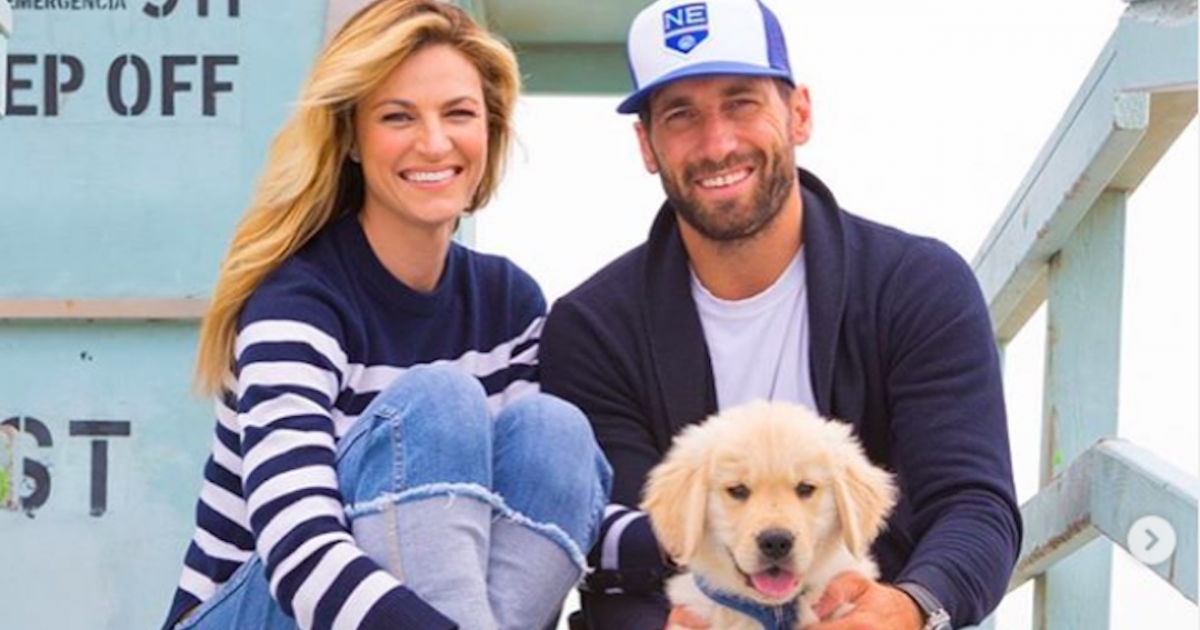Andrews Shares Post-Cancer Struggles
By Abigail Seaberg
Read MoreSince surgery was Andrews’ best option, her doctor said if she potentially wanted children in the future, she should consider freezing her embryos. This fertility treatment is known as IVF or In Vitro Fertilization. The couple had not previously discussed the topic of children in depth, but Stoll was very supportive.
“My boyfriend, now my husband, was like, ‘Let’s just do it. What do we have to lose,'” Andrews said.
Her surgeries were successful, but a lingering issue for Andrews is her fertility. In a recent interview on The Carl Watson Show, Andrews opened up about her recent struggles with infertility.
“He really wants to have kids, and I do too,” Andrews said. “So we’re just trying to be a good team and figure out the best possibility to do that.”
And being a sports star has not always made those efforts easy, but Andrews is willing to make her fertility treatment work with her TV-personality schedule.
“It’s really really hard, I’ll say, to do it during football,” Andrews said. “I’ve tried smuggling in IVF needles into a big NFL game and looking at the clock when it’s time to go, and you look at your security and you’re like, ‘I gotta go stab myself in a bathroom really fast, you mind taking me up?'”
But through it all, the 42-year-old has remained hopeful. She added that openly sharing her experience has helped.
“It makes the struggle not seem as difficult and it makes you feel like you’re not alone,” Andrews said.
Fertility After Cervical Cancer
Infertility can be a side effect of some cancer treatments. Luckily, there are options. Fertility preservation is available to women of childbearing age. The most commonly used practices are egg and embryo freezing, but other options are also available.
Any doctor treating a woman of childbearing age should discuss these options prior to cancer treatment. With cervical cancer, for example, a woman’s fertility depends on the stage of the cancer and the treatment received.
RELATED: Preserving Fertility During Cancer Treatment: What Are the Options?
In a previous conversation with SurvivorNet, Dr. Jaime Knopman, a reproductive endocrinologist at CCRM NY, said that time is precious when dealing with fertility preservation for women with cancer. In other words, the sooner the better when it comes to having these important fertility conversations with your doctor.
"The sooner we start, the sooner that patient can then go on and do their treatment," Dr. Knopman said. "A lot of the success comes down to how old you are at the time you froze and the quality of the lab in which your eggs or embryos are frozen in."
RELATED VIDEO: After A Cancer Diagnosis: Getting Fertility Hormone Injections
"Oftentimes, we just do what we call a 'fast start.' We start them no matter where they are in their menstrual cycle. Because of that, it can sometimes take a bit longer than it would for traditional IVF stimulation. But all in, you're never really talking about more than two weeks."
Dr. Terri Woodard discusses your options for preserving fertility after a cancer diagnosis.
Learn more about SurvivorNet's rigorous medical review process.


